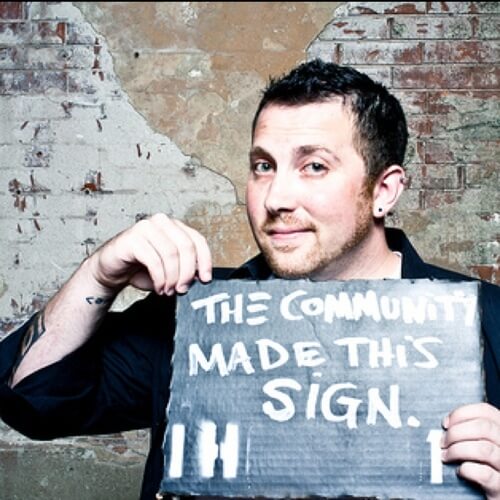After last week’s town hall about Indy Hall’s expansion, I was speaking with some friends about how we approach things, especially in times of growth. We’re pretty deliberate about the way we choose to interact and the things that we make priorities, and while these decisions feel natural to us we notice that they are often overlooked by others.
I referenced the book Betterness, by Umair Haque as a really great framework for discussing what we do that’s “special”. One of my favorite chapters in the book is about Arête.
What is Arête?
In Greek, Arête translates “virtues”.
Virtues are behavioral patterns – or habits and their queues – that if practiced and matured bring a “side effect” of eudaimonia, which the Greeks translate into “a good life”.
“…rich with relationships, ideas, emotion, health and vigor, recognition and contribution, passion and fulfillment, and great accomplishment and enduring achievement” This is how Umair describes eduaimonia.
Practicing Arête helps to make things more authentic and more meaningful.
Authentic and meaningful experiences are at the heart of eudaimonia and not by coincidence, are also at the heart of Indy Hall.
Practice
The virtues themselves don’t provide the good life, though.
I like to think of it like going to the gym: if you go to the gym to lose weight, you’re likely to be disappointed or fall off the wagon if the weight loss doesn’t show up as fast as you want.
If you go to the gym to be healthy, your motivators are intrinsic and you’re more likely to push through the harder parts of the workout routine as you make progress with becoming healthier.
Weight loss will be the byproduct of becoming healthier. The good life is a byproduct of practicing Arête.
In order to practice Arête, it requires a transformation in perspective.
From vision to ambition.
From mission to intention.
From strategy to constraints.
From objectives to imperatives.
As a thought exercise, while we’re working on our expansion project, I wanted to make notes on how we practice Arête at Indy Hall through each of those specific transformations. This is a bit of a living document, and I’m going to encourage our members to add to it as well.
Ambition
Ambition replaces vision – and it answers the question “why are we here?” More specifically, ambition is meant to define the kinds of returns you will provide, and to whom you will provide them (hint: shareholders aren’t usually in this list).
The more genuine and “thick” the value is, the greater the ambition. There are less bonus points for “bigger” than there are for “better”.
For Indy Hall, our ambition is to make Philadelphia (and ultimately the world) a better place to make a living doing what you love.
Intention
Intention is an action required to achieve your ambition. How will you improve things for the people you interact with? What daily interaction(s) will make sure your ambition is being fulfilled?
For Indy Hall, our intention is to…
…help unlikely groups of likeminded people form relationships.
…focus on people and their interactions, and the formation of relationships.
…help people tell the stories of the experiences they have in Philadelphia.
…trust people to do the right thing.
…guide people to being good citizens of Indy Hall and of Philadelphia.
…support people in their goals of building businesses to last, in Philadelphia and for Philadelphia.
Constraints
Constraints are the things are not be done. Constraints exist to avoid things that do damage to the value being created.
For Indy Hall, we must not…
…do anything against our community’s interest.
…focus on desks or square footage.
…create something only because we think we’re supposed to.
…accept the status quo.
…accept a “no” at face value.
…compromise our core values.
…prioritize a transaction before a relationship.
Imperatives
Imperatives are the things that must be done daily. They’re focused actions that help achieve the intentions and ambitions.
For Indy Hall, we must…
…keep people at the center of every action, interaction, and decision.
…welcome new community members, and make it clear that Indy Hall is theirs, not just ours.
…always look for a way to say yes.
…teach others in our immediate and neighboring communities how we operate.
Do It Yourself
If you’ve running a business, from startup to Fortune 50, you need to practice Arête.
If you’re developing a community, from a family to a city, you need to practice Arête.
If you’re creating, from art to technology, you need to practice Arête.
If you’re working, alone or as part of a team, you need to practice Arête.
If your goals include doing things that authentic and meaningful, you need to practice Arête.
What are your ambitions, intentions, constraints, and imperatives?
 I am always thinking about the intersection of people, relationships, trust and business. I founded
I am always thinking about the intersection of people, relationships, trust and business. I founded